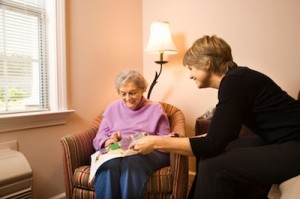 In April 2004, the National Alliance for Caregiving and AARP published the results of their comprehensive random telephone survey about caregiving, which was funded by the MetLife Foundation.
In April 2004, the National Alliance for Caregiving and AARP published the results of their comprehensive random telephone survey about caregiving, which was funded by the MetLife Foundation.
The study defined a caregiver as someone who provides unpaid care to another who requires help with activities of daily living (ADLs) or instrumental activities of daily living (IADLs).
ADLs include basic physical maneuvers that healthy individuals perform daily without assistance such as bathing, dressing, using the toilet, transferring oneself (from the bed to a chair, for example), and feeding.
IADLs define another range of tasks considered instrumental to one’s self-sufficiency. They include shopping, cooking meals, performing household tasks, doing laundry, managing money, using the telephone, and taking medications by oneself.
ADLs and IADLs are most often used to identify caregivers, to measure the level and type of work that caregivers perform, and to understand care recipients’ needs. ADL’s & IADL’s are used to determine eligibility for programs and services.
